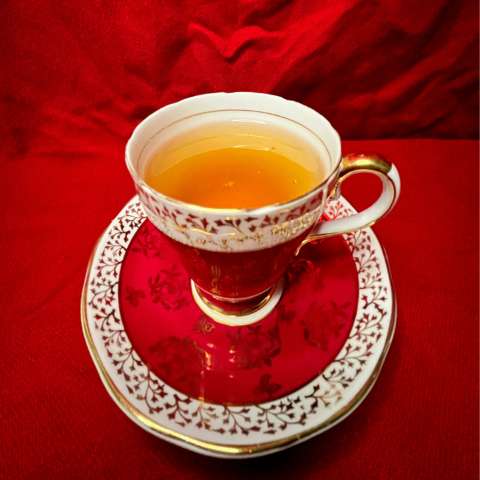If you have questions about tea, great. You are at the right place. We have answers for you. The following blog is written in a question answer format so that you don’t have to waste a lot of time digging through the pile of words.
Frequently asked questions about Tea
a. Can Tea Cause Heartburn?
There is a chemical called Theophylline in tea which can cause acid reflux and heartburn. We therefore suggest to drink tea with food or after eating food.
b. Can tea expire?
In short, as a food product, yes tea can expire. But tea has a long shelf life.
c. Can tea Cause gas?
Tannins and catechins in tea can cause bloating in some people. Again, we suggest not to drink strong teas on empty stomach.
d. Will tea stain my teeth?
The tannins present in the teas can cause teeth discoloration if you don’t regularly brush your teeth. But it takes a long period of time before you see the discoloration.
e. Will tea steep in cold water?
Absolutely, you can create amazing cold brews with teas. The only difference is steeping cold brews takes long period of time. You will need to steep loose leaf tea for more than 8 hours to get a good brew. We suggest steeping in the pitcher and keeping it in the refrigerator for 8-12 hours. Green and Black teas steep faster than White Tea.
f. Can Tea go bad?
In short, as a food product, yes tea can go bad if not stored properly. But tea has a long shelf-life if stored properly.
g. Is Milk and sugar in tea bad?
Milk and sugar in tea adds more calories to your tea intake. If you would like to regulate the calorie intake, yes milk and sugar in tea is bad.
h. What tea is good for digestion?
Peppermint is known for its ability to ease stomach cramps, reduce flatulence, and relax the digestive tract, providing relief from various gastrointestinal discomforts. Ginger plays a crucial role in stimulating digestive enzymes and soothing the stomach and gut lining, promoting efficient digestion and alleviating nausea. Cinnamon is effective in reducing bloating and gas, further supporting digestive health. Additionally, lemon stimulates the digestive tract, enhancing overall digestive function and facilitating the smooth processing of food.
i. Which tea has most caffeine?
Between Black, Green, White and Oolong, Black teas have most caffeine, but there are some black teas like “Greenish Black” and “Golden Tips” which are less fermented and have lighter caffeine.
j. How is tea made?
Depending upon the type of tea, tea goes through different steps in manufacturing process. Common process in tea making is withering, rolling, oxidation (only black and oolong), drying etc.
k. Where is tea grown?
Originated from China, tea is grown all around the world, except in the artic and Antarctic continents. China and India are among the biggest producers of tea in the world.
l. Where tea is the best?
While everyone has their own preferences, the best teas mostly come from young plants and grown in hilly and mountainous regions. Often small farms produce best teas than bigger estates.
m. Which tea is best for weight loss?
While there are commercial tea products that are specifically made as medicine for weight loss. If you are looking for tea in general, “Green tea” might facilitate digestion and weight loss.
n. Will tea dehydrate you?
Tea is the second most consumed drink around the globe. So, if consumed in a regulated way, no tea will not dehydrate you.
o. Which is more famous tea or coffee?
Tea is the second most consumed drink around the globe, so tea is famous.
p. Will tea make you poop?
In some people strong caffeine triggers the bowel movement. The same effect is applicable during coffee and cigarette consumption. So, yes strong tea might trigger the poop.
q. Can tea bags be composted?
Often tea bags contain microplastics. Only some tea bags which are completely made up of organic matter can be composted. It is therefore better to drink loose leaf tea.
r. Can loose leaf tea be composted?
Yes, loose leaf teas are organic matter and can be composted.
s. Does Tea have caffeine?
yes, tea has caffeine. Depending upon how it is processed, some teas have less and some teas have more caffeine.
t. Can tea break a fast?
What does breaking fast mean to you? If drinking liquid does not break the fast, then tea without any additives does not break the fast.
u. Do tea bags contain plastic?
Yes, most tea bags contain some amount of plastic.
v. Does tea make you pee or is tea a diuretic?
If you have underlying health conditions related to urinary or digestive tract, caffeine in tea can trigger frequent urinations.
w. Does tea contain nicotine?
No tea does not contain nicotine.
x. Does tea keep you awake?
If you consume tea with strong caffeine, it is highly likely to keep you awake.
y. Is tea healthy?
It is found that tea has multiple health benefits if consumed in a regulated way.
z. Is tea hydrating?
As the second most consumed beverage (after water), it can be said that tea is hydrating because most of the constituent in tea is water.
Authored By:
Bhaskar Dahal
2nd Generation Tea Entrepreneur
Founder and C.E.O, Nepal Hills Tea Inc.




